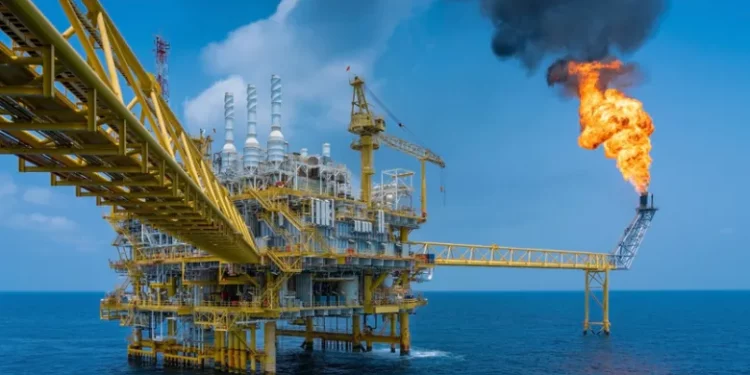Ghana’s Oil Production Decline Poses Economic Challenges and Investment Risks
Ghana has long relied on petroleum revenue as a crucial engine for economic growth, but sustained declines in production could have serious repercussions for public services.
- Advertisement -
The Public Interest and Accountability Committee (PIAC) of Ghana has sounded the alarm regarding the decline in the country’s oil production, warning that this trend poses significant threats to government revenue and broader economic stability. In recent comments at a consultative workshop held in Accra, Constantine K.M. Kudzedi, a member of PIAC, underscored that the immediate consequence of this decline is a reduction in revenue from oil and gas production, which traditionally constitutes about 7% of total government income.
Ghana has long relied on petroleum revenue as a crucial engine for economic growth, but sustained declines in production could have serious repercussions for public services. Mr. Kudzedi noted that when crude prices drop and production continues to falter, the government faces the spectre of substantial budget deficits. This situation complicates efforts to fund essential services, including healthcare, education, and infrastructure development, thereby stalling overall economic progress.
- Advertisement -
The data paints a concerning picture. After reaching a peak of 71,439,585 barrels in 2019, Ghana’s crude oil production has entered a downward spiral, with figures declining consistently in subsequent years. Production fell to approximately 66.9 million barrels in 2020, with further decreases to 55 million, 51.8 million, and 48.2 million barrels in 2021, 2022, and 2023, respectively. The 2023 figure marks the fourth consecutive year of decline since the country’s oil production began in 2010.
- Advertisement -
Mr. Kudzedi attributed the decline primarily to the maturation of key oil fields, notably the Jubilee Field, which has been Ghana’s flagship site since it commenced production over a decade ago. As the field matures, it is experiencing natural production declines, a trend mirrored in other fields like Tweneboa-Enyenra-Ntomme (TEN) and Sankofa Gye-Nyame. Without significant investments to boost production, the sustainability of Ghana’s upstream petroleum industry appears increasingly precarious.
Further compounding the issue is a marked underinvestment in exploration and production. Ghana has not seen significant new oil discoveries in recent years, limiting the potential for sustained production levels. This downturn is exacerbated by global shifts away from fossil fuels and a general lack of investment from both the government and International Oil Companies (IOCs). Technical challenges and inadequate infrastructure for oil processing, transport, and storage further hinder production capabilities.
- Advertisement -
The implications of declining oil production extend beyond mere fiscal considerations. The upstream oil and gas sector is a significant source of employment in Ghana, and a downturn could lead to job losses not only within the industry but also across related sectors. As International Oil Companies reevaluate the commercial viability of their projects, layoffs could ripple through the economy, aggravating already high unemployment rates.
Moreover, the decline in petroleum output is likely to deter both foreign and domestic investments. As Ghana’s existing oil fields continue to underperform and over two-thirds of petroleum contract areas fail to yield commercial discoveries, investor confidence wanes. Large institutional investors are increasingly shifting their focus toward renewable energy sources, viewing oil investments as high-risk in a transitioning global energy landscape.
As the world pivots towards decarbonisation and sustainable energy solutions, Ghana’s oil reserves and infrastructure risk becoming stranded assets. With an urgent need for new reserves and substantial investments, the country faces a critical juncture in its energy policy and economic strategy. Without decisive action, Ghana’s oil industry, once a beacon of hope for economic prosperity, may find itself struggling to navigate an uncertain future.
Source:norvanreports.com
- Advertisement -


